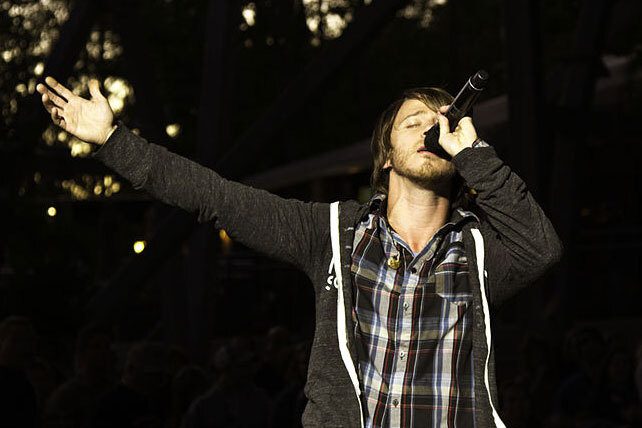“I was dramatically bitter. I mean, it felt like the most unfair thing that could have possibly happened,” Donehey said, noting that the band lost the opportunity to play their final tour together, which had sold out. In addition to emotional disappointment, the band also took a financial hit from renting equipment that ended up never being used.
“I’ve given so much of my life to this, and I don’t even get to ride out on the sunset,” Donehey said.
After Tenth Avenue North’s final tour was cut short by the pandemic, Donehey said that he felt like his life was out of control. However, he noted that he experienced a change in perspective after he camped out for a night in his backyard with his children.
RELATED: Did Switchfoot’s Jon Foreman Affirm the LGBTQ+ Community?
“There was this real pivotal moment where I suddenly realized — oh, my goodness — if I would stop fighting against this lockdown, like if I would quit resisting my circumstance, there’s actually a whole lot of beauty and magic right here,” Donehey said.
Donehey went on to say that after he changed his mindset, he wrote more songs in 2020 than he had ever written in a year. Many of those songs ended up on his new solo album “Flourish.” Others were released in singles and EPs.
Donehey Describes His Understanding of True Spiritual Maturity
Hallowell then asked Donehey how his faith has grown and changed over the decades and throughout his career in Christian music.
“For me, when I first became a Christian and when I [got] to college, I was so excited about so many superfluous topics,” Donehey said. “The main thing about my faith that’s changed is it’s just a lot simpler.”
RELATED: UPDATE: Tomlin United Removes ‘VIP’ From Ticket Packages Following Criticism
Donehey explained that while he used to get into theological arguments with other Christians, now he’s more concerned with how people’s beliefs affect their character, rhetorically asking, “Are you humble? Is [your theological belief] producing like a deep humility in you?”

